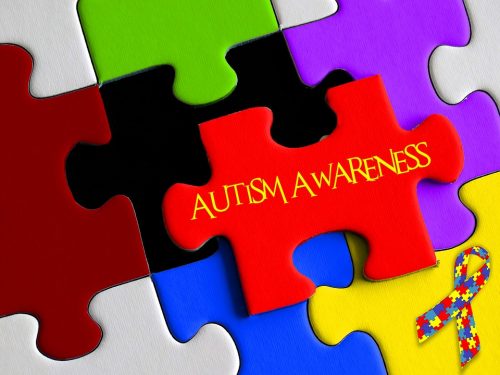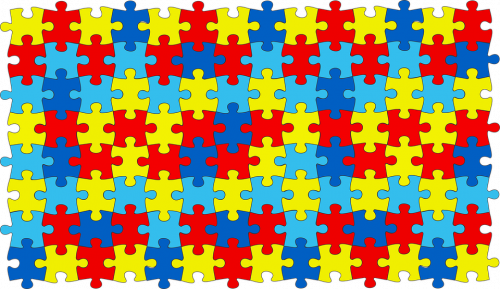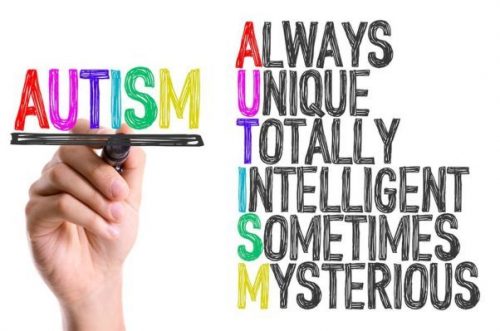For a family, a home that’s cozy though messy, spacious despite the lack of light, and fun in the middle of the noise from television and the kids running around is a near-perfect home. But for a family where there is a child diagnosed with Autism Spectrum Disorder, it may not be so fun and happy. It is crucial to make the home as safe and stress-free as possible for the child and the family to thrive and overcome the challenges of the life they are living every day. Continue reading “Keeping Your Home Safe For Your Autistic Child”
Signs And Symptoms Of Older Adult Autism
Not many people know that there are older adults who have Autism Spectrum Disorder (ASD) yet remain undiagnosed. Why? Because they only learned about ASD when they reached adulthood. Currently, the awareness of the condition has increased, leading to more older adults with autism to come forward and be appropriately evaluated. Further, those who are high functioning are not very easy to identify even by their loved ones, as they have symptoms that are not clear and identifiable to autism alone. Continue reading “Signs And Symptoms Of Older Adult Autism”
How To Discipline A Child With Autism
Having a child with special needs can be challenging because you need to be mindful of a lot of things. First of all, you will always have second thoughts on what to do with your child because you know that you have a peculiar situation. Because of this, there is a high tendency that you will feel a lot of stress and anxiety. Whenever you begin to notice that your current situation is making you a different person that you no longer recognize, be sure that you get in touch with an expert therapist.
-

Source: pixabay.com
Going back to rearing your child, we also understand that you are experiencing difficulty in how to discipline him. Of course, you want your child with an autism spectrum disorder to know the difference between right and wrong. For this reason, you want him to be disciplined at all times. The problem now is how you can make it happen if you are unsure with the situation? What are the right things that are allowed and those that are prohibited? Up to what extent can you become tough to your kid? These are some of the questions that we aim to answer in our article.
“Kids with trauma (and the more trauma, the more true this is) are very vulnerable when they are disciplined, so you want to discipline very carefully. Try to be as gentle as you can while still holding reasonable and safe guidelines.” Cynthia Ridgway, MA, LMHC, NCC, DCC said. Make sure that you read the entire post so that you can get the complete list of tips and tricks that will guide you in leading your child to the right path. Remember that it is still highly possible to discipline your kid well even though he has a medical condition. What is essential is that you have set your mind to make it happen. As long as you believe that it is a possibility and that you trust yourself, everything is going to be okay. Here are some of the strategies to remember when it comes to disciplining your beloved autistic child:
-

Source: pixabay.com
Be Familiarize With His Condition
The basic and initial step that you must complete as soon as possible is to learn everything you must know about your son’s medical condition. Do not be ashamed to ask several questions to his doctor or physician so that you will be informed. Keep in mind that there are signs and symptoms for autism spectrum disorder that you need to become a master of. Learn what triggers your child’s tantrums so that it will be easier on your part to control it. Aside from this, you can also try reading online journals or publications created by top psychologists and therapists who have dedicated their lives in the study of autism.
Focus On Rewards And Consequences
Barton Goldsmith, Ph.D., LMFT used to say, “Rather than focusing on weaknesses, find ways to assist your child in developing to his or her full potential. When encouraged, children will acquire talents to compensate for any deficiencies.” Train your child to act the way you want them to be by incorporating rewards and consequences in your day-to-day interaction. Be vocal in recognizing the good deeds that they have done for the given day. Aside from this, be sure that you give them some rewards for it so that they will be motivated to continue improving their attitude. The more they receive prizes, the more they can associate it with good behavior. On the other hand, if your child commits wrongdoing, do not hesitate to give a consequence for it. Take note that you need to find the balance between providing rewards and consequences to ensure that your child will not grow up as a spoiled brat. Teach him all the best life lessons while he is still young and continue to remind him about it.
-

Source: pixabay.com
Establish A Clear Routine
Children with autism spectrum disorder find it difficult to follow instructions and remember things. One of the downsides of this condition is that your child can have a poor memory. As such, you cannot expect him to remember what he did in the past or the words that you tell him. Because of this, you must become more patient and understanding in establishing a clear routine that he can follow. All you have to do is to create a schedule for the day and make it consistent so that he can make it part of his system. The key to succeeding in this aspect is to keep on repeating the process until he masters it. You can also use charts that can guide your kid on what he needs to do for a given time. “I think the parents who do best are the ones who can celebrate each achievement and developmental gain as it occurs, and who aren’t focused on an ultimate outcome of where the child needs to end up. These parents practice being ‘in the moment’ versus measuring progress against some ideal outcome.” That is according to Amy Keefer PhD, a clinical psychologist at Kennedy Krieger Institute’s Center for Autism and Related Disorders.
Conclusion
Make sure to recognize all your efforts in raising a child with autism. Remember that you deserve nothing but the best in this world. You are an amazing person who is ready to take on the challenge of raising a kid with special needs. All your efforts will be worth it in the end.
How Can You Help A Child With Autism?
Every parent has different challenges and struggles when it comes to raising her children. According to psychology, the common denominator about all parents in this world is that they want nothing but the best for their kids. Just like them, you also want your child to become a better individual as he starts to grow up. However, there are a lot of things that are not under your control. No matter how much you make an effort to make everything perfect, there will always come a time when you will be bombarded with hardships.

For today’s articles, the primary topic that we are going to discuss is how one can become a better parent to a child with autism. Finding out about your child’s condition can be difficult, especially if you have no idea where he got his autism spectrum disorder. Do not fret because you are not the only one who is going through this situation. The best part of all is that there are now effective ways on how you can treat this condition. Below is a list of tips that you need to remember if you want to help a child with autism:
Consult An Expert
Make sure to avoid making a diagnosis on your own, without consulting an expert about your child’s problems. “There are sensory issues to consider, educational decisions to be made, medical interventions, safety concerns, and therapeutic decisions, to name just a few.” A reminder from Janeen Herskovitz, MA, LMHC. The moment you start to notice that there is something peculiar in the behavior or personality of your child, do not hesitate to get in touch with a medical doctor immediately. Look for a psychiatrist that you can trust so that you can bring your child to him. There will be a series of tests that can help determine the actual or real medical condition of your child. Be sure to listen to what the doctor has to say. The said professional is going to provide you with the do’s and don’ts’s in dealing with a child positive with autism.

Spend More Quality Time
Do not forget the significance of spending quality time with your child as it can help a lot in his development. You need to see to it that he is your number one priority, regardless of how busy you are at work. “what’s more important than the quantity of time you spend with your kids is the quality of the time you do have together.” Francyne Zeltser, Psy.D. said. Keep in mind that the more you spend playtime and special moments with your child, the closer your relationship would become. If this continues to happen, he will start to feel comfortable in talking to you and letting you know what goes through his mind. Always remember that you need to make an effort in finding out what he is thinking every now and then so that you can immediately correct him if there is something wrong.
Accept Everything About Him
Never treat your child’s condition as a defect or damage. Take note that your love for him must not diminish just because he has an autism spectrum disorder. Your child needs your all-out support, love, care, and understanding. Learn how to accept his quirks and peculiarities. At the same time, you have to act normal when dealing with him. Never make him feel that he is different because of his autistic tendencies. Instead, explain to him what his condition means but continue to act like a regular person when dealing with him. “Another potential stress reducer is practicing acceptance,” Dr. Keefer said. “Parents who accept where their child is today seem to do better.” That is according to Amy Keefer PhD, a clinical psychologist at Kennedy Krieger Institute’s Center for Autism and Related Disorders.

Use Positive Reinforcement
One of the effective ways to train your child to become better is to use the method of positive reinforcement. All you need to do is to reward him whenever he does something great. As such, it is crucial that you watch out for his behavior on a day-to-day basis. Make sure to point out to him his good deeds and let him know how proud you are with the progress that he is making. The more you give him rewards for good deeds, the more he will become motivated and inspired to continue showing excellent behavior not only for you but also to others.
Create A Treatment Plan
Another thing that you have to consider is to focus on creating a treatment plan for your child’s condition. Keep in mind that it is best to start treatment while he is still young. In so doing, there is a better chance that your child can easily catch up with the treatment. As much as possible, think of your child’s welfare when you create a treatment plan. Remember that he must feel comfortable with whatever procedure or process you have designed. It is recommended to set a stable or predictable schedule to make things easier for him.
Be a great mother to your child by following the tips mentioned above.
Protected: Realities To Accept Through The 2015 Little Rock Autism Foundation Events
The Highs And Lows Of Raising A Child With Autism
What usually excites parents after childbirth is observing their baby’s growth and development. But what if your child starts to manifest somewhat different developmental signs? According to studies, symptoms of autism usually appear even before a child reaches three years old. These include problems in communicating, difficulty maintaining eye contact, nervous mannerisms, and even social withdrawal. It is essential for family members to be able to spot these signs early on to help the child better manage autism.
One day in the life of a parent of a child with autism is a mix of emotions and experiences that are both happy and sad. Here are few of the highs and lows of raising a child with autism:
The High Points

Continue reading “The Highs And Lows Of Raising A Child With Autism”
Tips In Improving Your Child’s Mental Health
The role that parents play in the life of their children is important. A recent study shows that the attitude and personality of a person are shaped during his childhood years. This is the primary reason why parents sometimes get the blame when their kids end up as irresponsible members of the community. Because of all these, it is imperative on your part to see to it that you do everything you can in raising your kid. As a parent, everyone expects you to help your beloved child grow into someone who can change the complicated world and make it a better place for everyone.

Continue reading “Tips In Improving Your Child’s Mental Health”
Tips On Promoting Positive Mental Health On Autistic Children

The way that people who have never been around autistic kids speak of the disability is diversified. The more empathetic ones tend to say, “I only know that they need to receive special education,” which is not exactly wrong. Joining a SPED class indeed helps them learn how to live normally and keep up with the world. The tactless people, unfortunately, interchange the words “mental disorder” and “autism,” assuming that they are synonymous to one another.
You need not waste your time correcting other people about the clear difference between the two, but you should not stay mum either if an unintelligent individual talks smack about autism in front of the disabled child. While he or she may not be the type to converse, the kid will eventually understand what the derogatory words mean. That can inadvertently depress him or her or cause anxiety or anger management issues to develop.
To further shield your child against unfeeling folks like that, you better concentrate on promoting positive mental health on a youngster within the autism spectrum.

- Strengthen Family Relationships
Unbeknownst to many parents, the oversensitivity of an autistic kid does not only get activated by changing lights or big, noisy crowds. Seeing you and your spouse fight tends to affect their behavior as well. He or she can become irritable and aggressive as days pass, considering that is his or her way of reacting to the situation.
What may alter the problem is showing the child that he or she belongs to a loving family. You help each other out when doing chores. If there is a misunderstanding, you talk in calm, low voices. In short, maintaining a steady and peaceful relationship with everyone in the family won’t trigger the symptoms often.
- Introduce A New Hobby
Autistic children are not different from non-disabled kids, in the sense that they feel bored with their monotonous life sometimes. It is understandable if you set a daily routine to teach them basic skills, yes. However, in case all they do for months is wake up at seven o’clock, go to school for four hours, eat snacks at three in the afternoon, and go to bed around eight o’clock, it may not be beneficial for their mental and physical growth.
To avoid pushing the kid to clamp up because of the exhausting routine, you should consider enrolling him or her to different activities. Bring your child to a new class every day to see which ones they will potentially like. The advantage of taking him or her to as many activities as possible is that you never run out of hobbies to introduce to your kid.
If he or she wants to return to karate or painting class, then that’s amazing. Considering you still have not found an activity that the child seems interested in, you may ask for recommendations from other autism parents.
- Share Coping Mechanisms
Lastly, children deserve to learn how to not give up from their moms and dads, regardless if they have a disability or not. As much as you want to be there for them 24/7, there will be instances when they have to deal with a situation alone. For that reason, you should impart coping techniques that they can use on various occasions.
Say, the child is afraid of the new environment. Instead of breaking down, he or she should distract himself or herself until the parent or another relative comes. In case your kid experiences sensory overload, he or she should seek a quiet place or put on the headphones to cancel out the noise.

Having positive mental health is highly significant, primarily for autistic children who are prone to receiving rude comments and backlash from mean people. They need to develop a peaceful mind so that depression, anxiety, and other disorders will not affect them. If you can start doing the tips above now, that will undoubtedly be helpful for keeping a child within the autism spectrum mentally strong.
Ways To Help Picky Eaters
Picky eaters are a common concern for all parents all over the world. It is the reason why countless shows are showing how parents can sneak in vegetables and fruits in the daily meal plan. How to get creative in order to entice the child into trying healthier food options and not to consume same kinds of food every day?

Strategies in Helping The Nonverbal Child With Autism Speak

Finding out that your child has autism is quite devastating for any parent; however, realizing along the way that your child has difficulty concerning verbal communication is adding salt to a fresh wound. Almost 30% of autism spectrum disorders cases have little or no verbal forms of effective communication. Experts suggest practicing encouraging language development in nonverbal children with autism religiously. Continue reading “Strategies in Helping The Nonverbal Child With Autism Speak”
